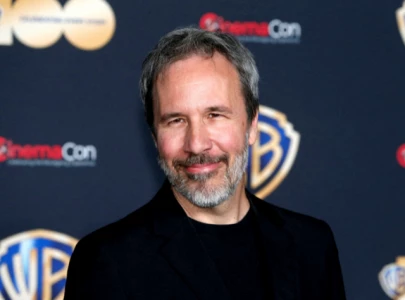The younger officers in the armies plotted coups against monarchies in Egypt, Syria, Iraq, Tunisia and, much later, in Libya. They rode to power on popular nationalist sentiment, revived and reformed societies and brought about social and economic change. Everything the new rulers then, rhetorically promised, struck a popular note among the Arab populations yearning for a better life and future.
Revolution was the key slogan in toppling the old political order at the apex of which ruled the monarchs. The new rulers, mostly from middle-classes, angered by the establishment of the state of Israel with the support of western powers, effectively used popular Arab frustration to seek legitimacy of their rule as they presented themselves as confrontationist with Israel, the West and their regional allies. For this, they aligned with the former Soviet Union that was more than willing to sell weapons for Arab cash.
Domestically, they turned authoritarian and oppressed and brutally crushed every sign of effective opposition to their rule. The regimes such rulers cultivated over time were as personalised as the old monarchies, but far harsher, violent and intolerant than any regimes at any other times. They rejected liberalism and its values, denying their peoples and societies freedoms that we in a dysfunctional democracy like Pakistan take for granted.
All such rulers from Saddam Hussein, Hosni Mubarak, Zine el Abidine Ben Ali to the latest ‘revolutionary’ who bit the dust, Col Muammar Qaddafi, suffocated their societies by sapping their creative energies and stunting the growth of their talents. This is exactly what Basharal Assad, his father and Ali Abdullah Saleh have done to their countries. For about half a century, a critical period of modernisation in the last century, they reduced their peoples to subjects. They sought loyalty, conformity to their politics and unqualified obedience to their rule and obtained this through selective patronage and suppression.
The wave of the Arab Spring is a new revolutionary spirit,seeking justice, equality, freedom and the right to govern — the core values of modern, open politics. It is a spring of hope among peoples conquered and humiliated by native ruling cliques. The awakening among Arabs carries with it a strong message for rulers still holding on to old order and not wanting to change; it is a New Age and these are new generations of Arabs who are willing to pay any price.
Rebuilding after a half a century of despotism is not going to be easy as the dictators have left behind social rubble, political mess, fragmented societies and states empty of souls. The success of new revolutionaries will depend on their commitment to the values that inspired them to pull down the dictators — freedom, justice and reconciliation.
Published in The Express Tribune, October 23rd, 2011.
COMMENTS (12)
Comments are moderated and generally will be posted if they are on-topic and not abusive.
For more information, please see our Comments FAQ

1732745394-0/Diddy-(4)1732745394-0-165x106.webp)










Arab history will never be "unfrozen" until Arab governments release historical records in their government archives. For example, in the U.S. foreign policy records are reviewed for declassification and released after a 30-40 year period. Many insights are gained, especially as to the true motives of U.S. policymakers. Our idea of what motivated Arab leaders is a matter of guesswork as it is limited to their Western interlocutors and (often bombastic) public statements. Written records are much more reliable.
@Organization of Pure Profit:
You are correct sir. It looks like, what is at play in Egypt is exactly what you are stating. Demcracy cannot be built without visionary leaders an d there appears to be none in any of these countries.
By visionary I mean, those who can transcend ego, greed, and power for the good of the nation. To be completely truthful, the entire world lacks such visionaries in politics, business and in every religion of the world today. Manipulating the masses ones own benefit is not being leader, leaders inspire people to do their beast and achieve their best.
Show me one, anywhere in the world.
Interesting reading although most of what the author says is known and reported very often and many a time hate dictators, particularly those who cling to power for so long, they lose contact with reality. Gaddafi called his opponents as rats and when caught by them said You are my children, do not shoot your father' But the danger is in Tunisia, where elections are being held today and it is expected that Islamist parties will win. My worries about Tunisia are for the rights of women there. The condition of Tunisia’s women, is unmatched in the Arab world. That is because Habib Bourguiba, the founding father of the modern Tunisian state, who outlawed polygamy, granted women equal divorce rights and legalized abortion. Zine el-Abidine Ben Ali, Tunisia’s toppled dictator, continued Bourguiba’s work, expanding parental, divorce and custody rights for women and promoting their education and employment. That is the only good thing he probably did. In 1960 nearly half of women were married by the time they had turned 20. By 2004 only 3% of girls between the ages of 15 and 19 were married, divorced or widowed. The literacy rate for women in Tunisia is now over 70%. Hope Islamists do not change all that.
I thank you Sir,for such informative analysis of the situation in some Arab countries.Frankly speaking I was at a loss to understand what was happening there.People had all the amenities of life provided to them literally at their door-steps yet they revolted and overthrew the governments of the very dictators who were so "considerate" of their populace.Your words"suffocation of societies by sapping their creative energies and stunting the growth of their talent"have removed my confusion,thanks once again.
Please consider the following: 1. The government of Muammar brought the Libyan government from poverty and debt, to prosperity and debt-free status in 41 years
Education from grade school through to college is free in Libya.
Healthcare is free and Libyan pharmacies and hospitals are comparable to high-quality European facilities.
Libya ranks No. 53 on the United Nations Index of Human Development.
Libya has the highest standard of living in Africa (even better than South Africa,Mauritius and Seychelles).
Libya gives free land and seeds to anyone who wants to farm that land.
There is virtually no homelessness in Libya as everyone is given a home.
Women in Libya have equal rights, not only as a philosophy, but in practice.
Under Gaddafi’s oil-revenue-sharing program, each Libyan gets $500 (Dollars) deposited into his or her bank account each month.
On marriage, each couple is gifted $60,000 to do with as they please. I think we need a Qaddafi for our country too....!!!!!
Though I'm no sympathizer of the totalitarian regime of Qadafi, I'm also unimpressed by the conduct of the libyan resistance movement for a number of reasons most critical of which are: 1. Seeking outside help (particularly former western colonizers) to assist in a propped up 'revolution' 2. The treatment metted out to the remnants of the old regime. 3. The unrepresentative nature of the TNC and its unknown headmen. That's one big reason that I favor slower reform than quick retribution of a revolution. If I were a libyan resistance figther I would bring Qadafi to stand before the libyan people and be judged by the law. Something, he would've despised. I would hold on to my decades of anger and hold national unity and rule of law supreme. As the purpose would be to start by doing the right thing. But we all know there were powerful forces who didn't want to see Qadafi speak up in his defence, whatever may be said. And arming the revolutionaries by the western powers smacks of the typical regime change and rule through proxy that we've seen previously. I can bet this act would only worsen things for the libyans. The Arab springs seems to be 'highjacked' season. Wish it was a truely indigenous movement.
Excellent Article by Mr. Rais. I have questions coming up though. Isn't it a bit too naive to assume that authoritarianism will not continue despite the change of faces? There are two concepts in political science "Structure" and "Agency", while structure is vast and prone only to gradual changes, agency of an individual is far more easier to remove. Now, my question to Mr. Rais is, the agents (dictators) have changed, the upper hierarchy of the structure has changed, but the social structure and its resultant political structure more or less stays the same, despite the sudden exogenous plugging out of agents (dictators). Further to this, why can we not correlate fall of Saddam in Iraq with fall of Gadafi in Libya, it can become a pure mess due to a power vacuum , or no? If no, what explains the difference? Now, re-structuring the economy and education and health institutions needs to be done over a decade or so, who will make that possible, who will benefit from this, who has the incentive to do so in absence of visionary leaders?
I don’t know why some people can’t understand the facts. How Qaddafi was killed? Do you know the ground realities? Basically he was called upon/ invited for signing an agreement to stop resistance and leave the country by NATO…..the day he accept….he came for negotiation and agreement……he signed the agreement and was insure to leave the country……it the same time the NATO hit/bomb his convoy and after identifying that he is still alive and injured…the NATO has given the information about his place to the rebels……. And was captured by the rebels and was killed. Remember it’s the same thing/situation again like Karbala……with Hazrat Imam Hussain….the history repeat its self in a new way…..and after decades….you will see that the same rebels will be crying and beating them self for their fathers and brother deeds. Further what was he or whatever he did as Human and specially Muslim…….Islam doesn’t not allowed any to act and kill someone in this stupid way. Remember my word…..the day will come that you or your children’s will be crying for their honor, integrity, prosperity and leader of the past.
I feel like we in Pakistan are moving in the opposite direction of the "Arab Spring". A Pakistani Fall (pun not intended but works, nevertheless). The popular public discourse in Pakistan is anything but awakening. The public discourse revolves around shallow rhetoric and here too such rhetoric strikes popular notes. Progressive and modern values are becoming rapidly and unconsciously un-Islamic if not contra-Islamic in public sphere. Justice, equality, freedom and governance are sought after in a very self-centered way instead of a "for all" way.
Let me say this loud and clear, things will only get worse for these countries.
Violence, brutality, vengeance and tyranny is the only thing known to the people of our torrid regions.
History supports this fact.
The Ottoman experience made the Arab Autocrats anti-religion and rhetoric against Israel provided them legitimacy to rule so long. Any islamic resurgence was crushed at home but allowed to vent its spleen in Palestine, Afganistan and Pakistan. The stifling of Islamist resurgence was good but styming liberalisma and pluralism was bad. The venom of Islamism has made the Arab youth disenchanted with Al-Qaeda and current spring is against local dictators and luckily not anti-West. West, read USA, should be careful that its too much envolvement will allow the latent Islamist to use it as a grist to their venomous mills.
Yes these pan-Arabists played the nationalistic, anti-colonial or anti-west tunes to capture power. Once there they became what their predecessors were and that is the tragedy of the Third World in particular of the so-called Islamist world. I don’t see this as some kind of perestroika but a mere a change of guards.